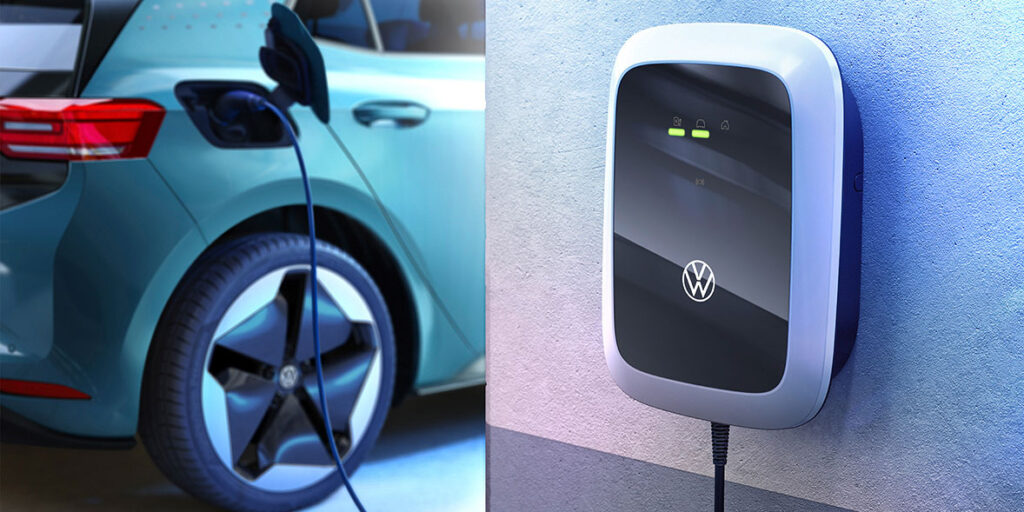
Electric Vehicle Charging Points South Wales
With the increasing popularity of electric vehicles, the demand for EV chargers is also on the rise. To facilitate the growth of electric vehicle charging infrastructure, local governments and businesses are investing in electric vehicle charging stations to help promote sustainable transportation alternatives.
Investing in EV charging stations is not only an environmentally friendly decision but also has the potential to attract eco-conscious customers.
Installing an electric vehicle charger involves a several step process which is critical to ensure a successful installation.
First, one needs to identify an appropriate location to install the charger. This location should be easily accessible and with ample room for cars to charge. It is important to ensure that the location is safe and secure, and that any necessary permits or permissions are obtained prior to any installation activities.
Next, electrical contractors need to be hired to carry out the electrical work needed to install the EV charger. This is a critical stage as significant electrical work and rewiring may be required to ensure the proper functioning of the electric vehicle charger. The hiring of a licensed electrical contractor is essential to ensure safe and effective installation.
Once electrical work has been completed, the physical installation of the charger can take place. Depending on the type of electric vehicle charger being installed, different types of mounting brackets or stands may be required. In certain cases, this may involve architectural modifications to the building or property, so it is important to anticipate these requirements at the outset. The charger also needs to be configured to communicate with the EVs being charged and appropriate signage needs to be installed to inform users about how to use the charging station and any related fees that may be incurred.
After installation, it is important to perform regular maintenance and servicing of the charger to ensure proper functioning and safety. This may include inspecting the charger for wear and tear, alerting repair technicians when parts need replacing, and ensuring that the charger is cleaned and free of debris. The charging station’s performance needs to be regularly monitored to ensure that it is charging properly and that there are no safety issues.

One of the key considerations when installing electric vehicle chargers is the expected usage patterns and charging requirements. This will dictate the type of EV charger that is selected as well as the overall cost and installation requirements. For example, slow AC chargers are typically best suited for overnight charging, while fast DC chargers are primarily used for quick top-ups. As electric vehicle technology improves, the number and type of charging stations may also need to be revised and reconsidered.
In addition to the technical and logistical considerations that come with installing an EV charger, it is also important to consider the marketing and perceived value of installing chargers. Installing EV chargers sends a powerful message about a business’s commitment to sustainability and making green alternatives accessible to customers. This can help to attract eco-conscious consumers, increase a business’s green credentials, and demonstrate a commitment to environmental leadership.
Finally, cost is an important consideration when installing an electric vehicle charger. While EV chargers have become more affordable in recent years, installation and operational costs can vary widely depending on the location, type of charger, and local regulations.
In conclusion, the installation of an electric vehicle charger may seem like a daunting task, but it is necessary to facilitate the increasing demand for electric vehicles and promote sustainable transportation. Careful planning, working with experienced electrical contractors, matching the charger’s specifications to anticipated usage, and promotion to attract eco-conscious consumers are all part of the process.
The long-term benefits of installing an EV charger, including attracting customers, demonstrating environmental leadership, and promoting green transportation, make the installation of EV chargers a worthy investment.
Local Installations of EV Charging Points throughout South Wales.
With the growing popularity of electric vehicles, the need for electric vehicle charging points is also on the rise. However, before installing an electric vehicle charging point, the homeowner or business owner needs to choose a Local Qualified Electrician. In this essay, we will discuss the benefits of using a local electrician to install an electric vehicle charging point.
First and foremost, local electricians have an intimate knowledge of the local electrical codes and regulations. They have experience working with electrical systems within the locality and know precisely how to install the charging point correctly. This knowledge is invaluable, particularly when it comes to obtaining any necessary permits, approvals or inspections required by local officials. In addition, they have contacts with local utilities and understand the electrical capacity of the local power grid, which is essential to guarantee the proper installation of the charging point.
Secondly, local electricians can offer more competitive pricing compared to specialised EV installation companies. Local electricians often work with a lower overhead cost, as they do not have the large national marketing budgets that many specialised EV installation companies have. This translates to a lower final cost for the charging point installation, as well as more flexible payment options for the homeowner or business owner.
Another benefit of using a local electrician to install an electric vehicle charging point is the level of personalized service that they offer. Local electricians pride themselves on building long-standing relationships with their clients, and this is particularly the case with those in their local community. By hiring a local electrician, homeowners and business owners can have a more personalized experience, with more customizable solutions that meet their specific needs. Local electricians prioritize customer service and are more likely to uphold their reputation for quality work within their locality.
Furthermore, local electricians may have specific experience in electrical work for certain types of residential or commercial buildings. Working with a local electrician with an in-depth understanding of electrical work in certain types of buildings, such as heritage or historic properties, allows for more specialized and tailored installation services.
Finally, using a local electrician creates opportunities for more environmentally friendly practices. This is because electricians who work within the local community strive to make the region more sustainable by promoting environmentally conscious practices. Therefore, they may be invested in promoting sustainable transportation through the installation of electric vehicle charging points. Engaging a local electrician offers the opportunity to work with someone who is locally rooted and may share similar environmental values.
By supporting a local business, homeowners and businesses keep revenue and jobs in the community, contributing to its economic growth.In conclusion, the use of local electricians to install car charging points comes with many advantages, including personalized service, an understanding of local codes and regulations, competitive pricing, the ability to promote environmentally friendly practices, and contributing to the local economy. As the demand for charging points increases, the importance of using a professional electrician with experience in the local area only increases. Hiring a local electrician ensures that the installation is done safely, efficiently, and with excellent client service. It is therefore a wise choice for homeowners and businesses seeking to adopt the use of electric vehicles.